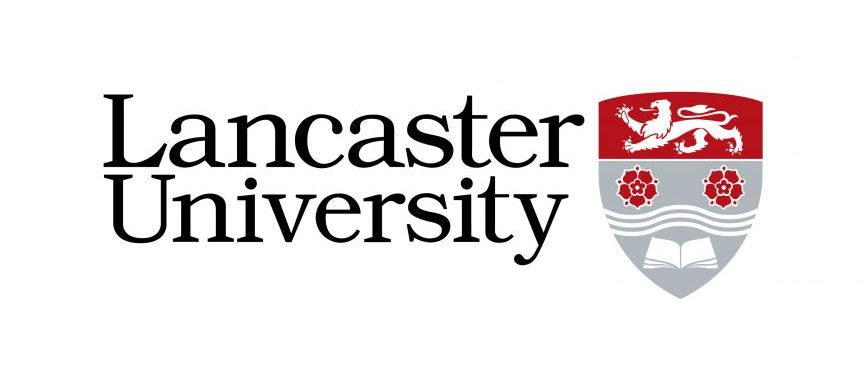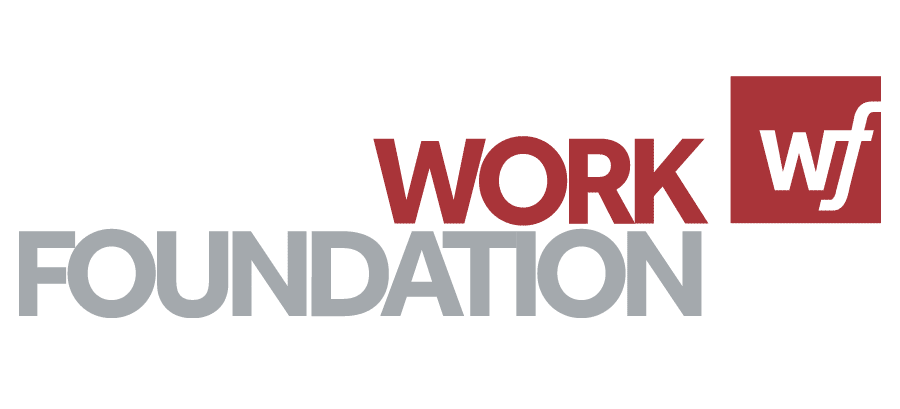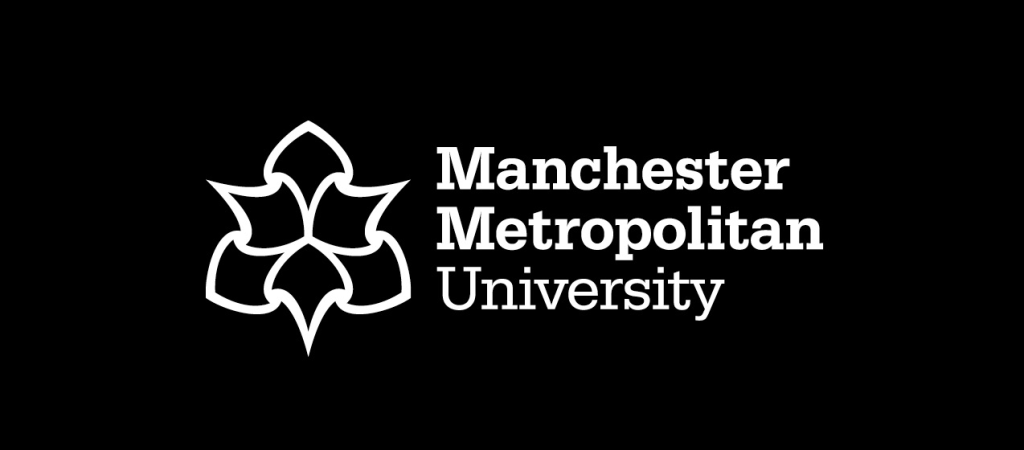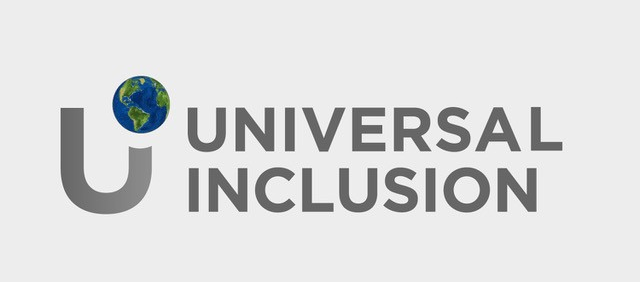This page contains details of news articles and forthcoming events relevant to the project, as and when they occur.
December 2024
Friday 13 December saw Lancaster University play host to the beginning of production for a film based on our findings from the Inclusive Remote and Hybrid Working Study. Envisioned as a way to allow participants to discuss in their own words how working in a remote or hybrid way allows them to better balance their careers with their disabilities, filming involved each participant discussing these issues individually, before a group discussion between all of them together chaired by Dr Calum Carson. Project leader Dr Paula Holland also filmed a section highlighting some of our main findings. Production of the film now moves to the digital sphere, with remote working participants filming their own sections over the coming months to be integrated with the in-person scenes in the finished film. The film is being directed and produced by Diverse Media, a specialist disabled-led creative productive house which you can find out more about here.
The film will be available in full in Spring 2025, so watch this space!
November 2024
On Tuesday 12 November, Dr Calum Carson participated as an invited speaker in a roundtable exploring how flexible job design and help to improve employment outcomes for people with fluctuating disabilities. Highlighting recent research on “FlexPlus” jobs conducted by Kings College London researchers Catherine Hale, Ben Baumberg Geiger and Kim Hoque , speakers at the roundtable (consisting of employers, professional organisations and researchers) discussed how employers could help to support people to better balance their disabilities and/or long-term health conditions with their working lives through the introduction of “FlexPlus” jobs, and how best to persuade employers of the virtues of such roles. More information on the FlexPlus project can be found here.
October 2024
The 7th to the 12th of October 2024 played host to Dutch Accessibility Week, which saw researchers, campaigners, employers, policymakers and practitioners across the Netherlands highlight the importance of an accessible workplace. What is needed to be able to work comfortably if you are in a wheelchair, for example, or cannot see well, cannot hear well, are sensitive to crowds or have an energy limitation? This week is dedicated to starting (and continuing) conversations on making work a ((more) accessible workplace where everyone can work well, regardless of disability and/or long-term health condition. In the same week for the UK it is also National Work-Life Week, part of an annual campaign to get both employers and employees talking about wellbeing at work and work-life balance.
As a contribution to these conversations across both the Dutch and the English employment landscapes, on the first day of the Week project analyst Rebecca Florisson presented (in fluent Dutch) preliminary findings from both the quantitative and qualitative findings of the Inclusive Remote and Hybrid Study at a webinar in collaboration with academic researchers at the Amsterdam University of Applied Sciences. These continue the Study’s efforts in collaborating across national boundaries on the implications of remote and hybrid working for people with disabilities and long-term health conditions, and engaging with non-academic partners and stakeholders working on how to make working life more inclusive (and accessible) for all members of the workforce.
On Monday the 14th of October Paula Holland and Calum Carson attended the launch event at the Houses of Parliament of a report from the All-Party Parliamentary Group on Eye Health and Visual Impairment’s entitled “Changing Attitudes, Changing Lives – Employer Attitudes and the Employment of Blind and Partially Sighted People.” The event was attended by a varied audience of contributors to the report, and speakers including Jamie Ward (Head of Talent & Learning at Channel 4) and the Minister for Employment Alison McGovern spoke about the need for the employment landscape to be accessible for blind and visually impaired workers.
The report sets out 22 recommendations for the UK government and employers to implement in order to break down barriers for blind and partially sighted people to better access the labour market, and improve their everyday working life within their current roles. These recommendations were based on the testimony received during evidence sessions earlier this year from employers, disability organisations and academic researchers, including Paula and Calum who presented evidence to APPG members in March on the working experiences of blind and visually impaired people derived from the findings of the Inclusive Remote and Hybrid Working Study. The report can be read in full here (large print and accessible versions are also available at the bottom of the page).
On Tuesday the 15th of October Rebecca Florisson presented early findings from the Study, focusing on insights exploring disabled workers’ experiences, at an online conference run by the Professional Development Group for practitioners, HR and managers.
September 2024
The Inclusive Remote and Hybrid Working Study team submitted evidence at the beginning of September to the Welsh Parliament Equality and Social Justice Committee’s consultation on the disability and employment gap, based on the preliminary findings of interviews and survey responses from disabled workers and employers on their experiences of remote and hybrid working models. An in-person evidence session based on testimony received has also been arranged for Monday 30 September.
July 2024
On Thursday 25 July, Dr Calum Carson took part in an invited roundtable organised by the Work Foundation at Lancaster Castle with employers from the North West of England, focused on the health and work challenges currently facing organisations in 2024. Questions deliberated among the speakers included:
• What workplace health and wellbeing strategies and policies (e.g. sick pay, occupational health) need to be put in place in light of the new long-term health challenges? And what support do employers need from Government to do so?
• What innovative action have employers trialled to support workers to remain in employment whilst managing conditions? (e.g. implementing flexible leave models, using new technologies for remote and hybrid working).
• Are there key groups of workers with specific barriers or needs that employers are trying to recruit into jobs or support to stay in work?
• What role could re-designing job roles play to provide more security and flexibility to workers?
• What are the implications for the welfare and health systems, and how employers and employees engage with them? How will systems and institutions need to change and adapt?
• How do these factors play out in different sectoral and organisational settings?
This roundtable also saw an announcement of the launch of a renewed Work and Health Forum across the North West, bringing together academics, employers, civil society, and policymakers to discuss issues related to work, health and wellbeing and how best to tackle them in today’s employment landscape.
Project members Dr Calum Carson and Dr Alison Collins have spent time this summer presenting preliminary findings from the Study to an international audience of academics and practitioners at conferences across Europe. Calum gave a talk highlighting some of the main mixed methods findings emerging from the first stage of fieldwork for the study (involving an exploration of the experiences of people with disabilities and long-term health conditions) at the European Society of Health and Medical Sociology’s Conference on Intersectionality and Inclusion in Health at the University of Antwerp, while Alison focused on findings regarding absenteeism and presenteeism during a talk at the European Academy of Occupational Health Psychology’s annual conference at the University of Granada.
June 2024
Dr Calum Carson was an invited panelist for a roundtable exploring recommendations for employers in how best to implement inclusive forms of hybrid working. The discussion ranged from the need for extra training for line managers in order to ensure they can manage workers operating within a hybrid model effectively, the need to ensure in-office and hybrid workers feel that they are treated equally within the organisation, and the facilitation of effective hybrid meetings. Dr Carson also argued emphatically against the use of intrusive surveillance to monitor workers during their days working from home, arguing instead for the cultivation of a longer-term trust based approach as an alternative strategy for employers to pursue.
Project members Calum Carson, Rebecca Florisson, Paula Holland and Jacqueline Winstanley were at Nuffield Foundation headquarters in London on Thursday 27 June for the final dissemination event of the “Unpacking the disability employment gap” project, led by Dr Mark Bryan and Professor Jennifer Roberts of the University of Sheffield. Funded by the Nuffield Foundation under the same funding programme as the Inclusive Remote and Hybrid Working Study, the project has explored over the past three years what contributes to the longstanding disability employment gap in the UK. More detail on the project and its final outputs can be found here.
May 2024
Dr Calum Carson and Rebecca Florisson were invited panelists for a roundtable event at the Scottish Parliament to discuss the findings of the report ‘Women in Multiple Low-paid Employment: Pathways between Work, Care and Health,” conducted by researchers at the University of Glasgow and funded by the Nuffield Foundation. The report was informed in part through the emergent insights from fieldwork for the Inclusive Remote and Hybrid Working Study, discussed with the project team and other invited experts at an earlier roundtable event held at the University of Glasgow in March 2024. More information on the wider project can be found here.
An episode of the podcast Social Footprint featuring Dr Calum Carson was published, covering the Inclusive Remote and Hybrid Working Study and the future of inclusive flexible working more widely among other issues. The episode can be listened to in full here.
April 2024
Dr Calum Carson presented a talk on some of the project’s emergent findings at the 2024 International Labour Process Conference at the University of Göttingen, Germany. His talk highlighted some of the major themes from interviews conducted for work package 1 of the study, including the advantages and disadvantages of remote and hybrid working for disabled workers, as well as an exploration of the changing employment landscape helping to inform the study as a whole.
Rebecca Florisson also presented at the same event on her own ongoing ESRC-funded PhD research, which focuses on life course transitions of insecure workers using longitudinal data.
Dr Calum Carson presented a talk at the British Sociological Association’s annual conference, which focused on the responses of disabled workers from the online survey conducted during autumn and winter 2023 for the study, and their perspectives on inclusive remote and hybrid working and their own experiences of working in these ways.
March 2024
Project fieldwork began on work package 2 of the study, revolving around employer perspectives on inclusive remote and hybrid working. The team are interested in the journeys that organisations have been on since the pandemic in introducing remote and/or hybrid models of work and what their experiences have been across this time, as well as hearing their thoughts on what the future is for these models of work across the UK labour market.
Dr Paula Holland and Dr Calum Carson were invited to the Houses of Parliament to give evidence to the All-Party Parliamentary Group on Eye Health and Visual Impairment. Their evidence explored employer attitudes towards reasonable adjustments for blind and visually impaired people within the workplace and insights on individual experiences in this area explored throughout fieldwork for work package 1 of the study, and will help to form part of a larger report to be published by the APPG in the summer of 2024.
Project colleagues worked alongside the Work Foundation to publish a joint submission to the Work and Pensions Select Committee’s Call for Evidence on disability employment. The submission covered policy recommendations intended to help close the disability employment gap, as well as highlighting the role that employers have to play in helping to support workers with disabilities and/or long-term health conditions.
Dr Calum Carson and Rebecca Florisson took place in a roundtable event at the University of Glasgow as part of the Nuffield Foundation-funded “Women in multiple low-paid employment: pathways between work, care and health.” They highlighted the importance of inclusive forms of remote and hybrid working in promoting positive pathways between work and health, particularly for workers with disabilities and/or long-term health conditions, and utilised findings from work package 1 of the study to inform their arguments. These discussions will help inform the development of a policy recommendations report for the Scottish Parliament, to be published in May 2024.
Dr Calum Carson was the featured guest on an episode of the podcast Social Footprint, and discussed the Inclusive Remote and Hybrid Working Study and the future of inclusive flexible working across the employment landscape more widely in a post-pandemic landscape.
February 2024
The beginning of February saw the end of project fieldwork on work package 1 of the study, which specifically focuses on disabled workers’ experiences of remote and hybrid working. These efforts involved an online survey to explore both experiences to date and what respondents would suggest for employers to do to make these models of work more inclusive, alongside 45 in-depth interviews with individuals across the survey sub-sample to explore their thoughts in more detail.
This spring sees the project team now move to a focus on exploring employer perspectives on inclusive remote and hybrid working.
Dr Calum Carson contributed to the Welsh Parliament’s Equality and Social Justice Committee’s Area of Interest call on the disability employment gap, within which the Committee is interested in exploring what action government and employers can take to increase employment opportunities for disabled people and to reduce the disability pay and employment gaps. Calum suggested areas of focus that the Committee could place an emphasis on to affect change in these areas, and provided some early insights from the Inclusive Remote and Hybrid Working Study that are relevant to the Committee’s work.
January 2024
Dr Calum Carson was an invited panelist at a roundtable hosted by Zoom on Thursday 25 January. Organised by the Disability Policy Centre, the event focused on how flexible working can work better for disabled people and carers, with panelists from across business, academia and the third sector, and was chaired by Wendy Chamberlain MP. Among other issues, the event discussed current barriers to disabled workers and carers accessing remote and hybrid working, how employers can help make these roles inclusive for all of their workforce, and what role there is for policymakers in helping to promote and facilitate these models of work. A pamphlet summarising some of the main themes of the event is forthcoming.
December 2023
Dr Calum Carson has written a guest article for Disability Rights UK on the need to listen more clearly to the voices of disabled workers in designing the future of hybrid and remote working models. The article can be read in full here.
Project leader Dr Paula Holland and project partner Dr Calum Carson have written an article together in recognition of the United Nations’ 2023 International Day of Disabilities on how to make remote and hybrid work more inclusive, and what employers can do to make this a reality. The article can be read in full here.
November 2023
Project leader Dr Paula Holland and project partners Dr Calum Carson and Rebecca Florisson have written an article together for The Conversation, responding to the government’s new Back to Work Plan and their accompanying rhetoric on disabled people “doing their duty” by taking up remote working roles in greater numbers. The article can be read in full here.
October 2023
Dr Calum Carson was the featured guest on the latest episode of the “Long Covid Podcast,” which can be listened to in full here. Calum discussed the importance of the project’s focus on representing as many diverse conditions as possible in it’s findings, including the experiences of those suffering from the effects of Long Covid since the beginning of the Covid-19 pandemic in 2020. Other episodes of the podcast can be listened to here.
September 2023
Rebecca Florisson (Principal Analyst for the Work Foundation and Inclusive Hybrid and Remote Working Study project partner) and Calum Carson have written a guest article for the International Public Policy Observatory, which you can find in full here. The article highlights the critical need to take advantage of the current post-pandemic landscape in ensuring that both employers and policymakers better understand how to develop and support new forms of remote and hybrid working that are more inclusive of disabled workers’ needs, and the wider need for the design and structure of new remote and hybrid working strategies to work for the entirety of a workforce rather than for only non-disabled workers.
On the 20th of September Dr Calum Carson participated as an invited expert in a closed roundtable on disability and hybrid working facilitated by the International Public Policy Observatory, alongside attendees from across academia and the public policy realm.
The International Public Policy Observatory (IPPO) aims to mobilise and assess evidence from across the four nations of the United Kingdom, and beyond, to inform policymakers about the best ways to address social harms, and to contribute to better policymaking and thereby to the wellbeing of all UK citizens. Established at the start of the global pandemic in late 2020, the observatory’s initial focus was to mitigate the negative effects of COVID-19, but have since extended to three other national cross-cutting and complex policy challenges: Place and Spatial Inequality, Socio-Economic Inequalities, Net Zero and COVID Recovery. IPPO’s policy research questions are shaped and framed by numerous and diverse conversations with decision-makers from across the devolved nations and draw on research and expertise from around the world.
August 2023
“How to make the workplace inclusive of people with physical and mental health needs” (Dr Calum Carson, Lancaster University)
Dr Calum Carson (Senior Research Associate for the Study) has written a guest article for the LSE Business Review, which you can find in full by clicking on this link. The article argues that that we must understand better the individual experiences of those facing health issues within the workplace, not only to ensure that existing inequalities are not repeated as the world of work changes but also to prevent new ones replacing them.
The LSE Business Review is a knowledge-exchange initiative designed to share the best of modern social science ideas, theories and evidence with business decision-makers and professionals, and to learn from them in turn. They present the expertise of professors in finance, economics, business studies, law, management, accounting, social psychology, mathematics, public policy, sociology, geography, philosophy, media, cultural and gender studies, and political science, in accessible and relevant ways for business.
June 2023
“Making remote and hybrid working more inclusive: understanding disabled workers’ experiences” (Dr Calum Carson, Lancaster University)
Dr Calum Carson (Senior Research Associate for the Study) has written a guest article for our project partner the Work Foundation’s website, which you can find in full by clicking on this link. The article explores the origins of how the Inclusive Remote and Hybrid Working Study came to be, why it is so important to better understand disabled workers’ experiences of remote and hybrid working and what they need to make such models of work inclusive to their needs, and how you can get involved in the research and ensure that your voice is heard in our findings yourself.
The Work Foundation is a leading think tank for improving working lives in the UK. They believe everyone should have access to secure, rewarding and high-quality work, and deliver rigorous applied research to tackle structural inequalities in the labour market and improve working lives across the UK.
“Press release: UK survey on disability inclusive remote and hybrid working” (Lancaster University)
The release of our project survey exploring UK-based disabled workers’ experiences of remote and hybrid working has been featured on the Lancaster University Press Office website, highlighting the focus and origins of the study as well as encouraging people to participate in the survey and/or share it with their own networks.
You can read the press release in full by clicking on this link.




